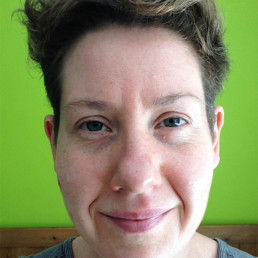
Written by Elen Jones
Director at Ambition Institute. Former teacher in South London and West Wales.
We celebrate International Mother Language Day on 21st February. Let’s re-frame the discourse around EAL and celebrate the wealth that comes with being multi-lingual rather than considering those who have EAL as deprived because of it.
I had a great aunt who once explained to me why she didn’t teach her children to speak her mother tongue: Welsh. She was a passionate educator, a teacher all her working life and she supported me in applying to and eventually attending university. She believed that learning Welsh would take up space in her children’s memories, space that could otherwise have been used for something more useful. So the children didn’t learn any Welsh.
Now since my aunt made that decision, over half a century ago, we know much more about the process of learning and how our memories work. Thanks to the awareness of cognitive science that is accumulating in the sector, we know that long term memory has huge capacity. No knowledge is going to fall out of a person’s long-term memory in order to accommodate another language. However, being EAL, having a mother tongue other than English, is often framed as a challenge at best, a disadvantage at worst. Seldom is the discourse a celebration of the diversity of language in our communities.
Language is the tool we use to communicate, to make meaning and to articulate our thinking. We can only use what we know to do this. The word for turquoise in Welsh is gwyrddlas, literally translated greenblue. In Welsh to think and the mind are the same word: meddwl. These subtleties of perception and understanding give those of us who are EAL more, not less, to think with and about. Studies into the cognitive processes of those who are bilingual have found a number of advantages for cognition.
Like any aspect of identity, each individual with EAL is shaped by their own experience and one’s mother language is just one aspect of identity that intersects with many others. Many EAL learners who enter the English education system early in their lives fare well, at least as well as those with English as a mother tongue. Those who enter the education system later tend to fare less well. Pupils who are EAL and live in poverty are less likely to make good educational progress than their peers. Supporting EAL pupils to progress along language levels and grade boundaries, and to become fluent in the languages of their communities, is important, of course; but in the drive to do so, do we sometimes omit the ways in which EAL pupils can enrich the understanding of others by sharing their perceptions and experiences?
On International Mother Language Day let’s actually celebrate. The diversity of language, and of thinking and culture that come with it, add huge wealth to our communities. The day-to-day support for people with different identities that translation, re-explanation and careful communication requires of us as members of communities with a range of mother languages builds inclusion. It’s a habitual reminder that we are all both other and the same in many regards.
I recently had a long train journey from London to North Wales. On the last leg I shared a seat with a German family. I speak almost no German. They spoke almost no English. The mother had two sons and the boys squeezed in between the two of us. I understood almost nothing of their conversation, but as a mother of young children I completely understood the efforts involved in trying to keep two energetic, hot, excited and travel-weary children entertained and contained for a long journey. The final part of the train journey follows the coast of North Wales along the Irish Sea. As the train approached the coastline one of the boys called out meer. In Welsh y môr, in English the sea. Without a common language we all knew what we were talking about.
Using language is one of the qualities that unites us as humans. Let’s celebrate the way in which we all use language, and all use different languages, to communicate and form communities. All else being equal (and too often it is not) pupils are richer, not poorer, for celebrating their mother tongue.

